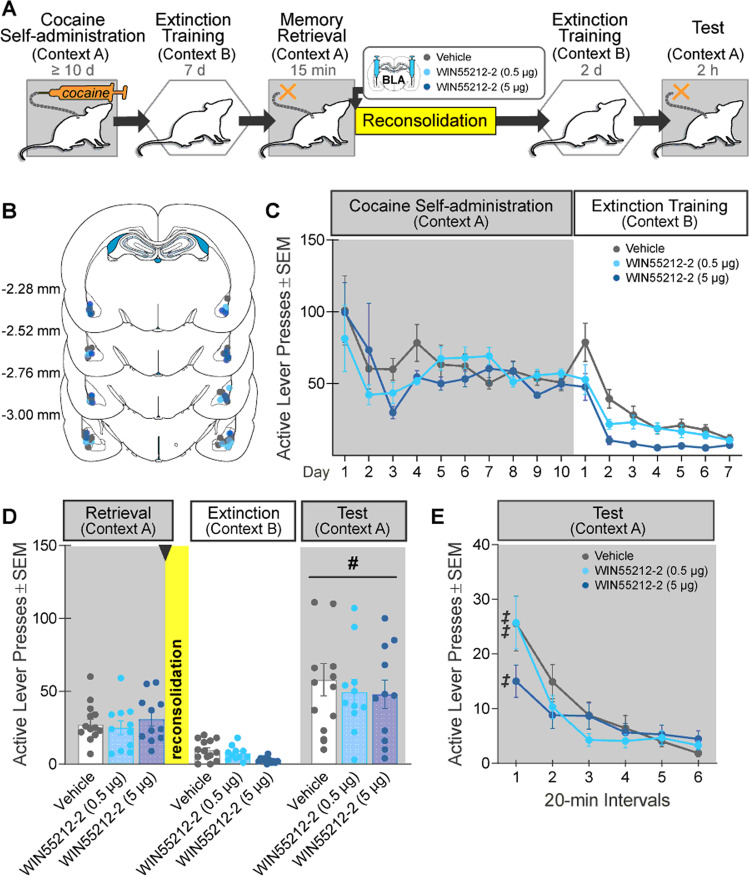Fig. 4. Intra-BLA WIN55,212-2 administration during memory reconsolidation does not alter drug context-induced cocaine seeking 3 days later.
A Experimental timeline. After cocaine self-administration training in one context (cocaine-paired context, Context A) and extinction training in a different context (extinction context, Context B), rats received bilateral intra-BLA administration of the CB1R agonist, WIN55,212-2 (0.5 or 5 µg/0.5 µL per hemisphere; n = 11 and 11, respectively) or vehicle (n = 14) immediately after the 15-min cocaine-memory retrieval session. After two additional extinction sessions in the extinction context with ≤25 active lever responses, cocaine-seeking behavior was tested in the cocaine-paired context. B Schematic of cannula placements. Symbols represent the most ventral point of injection cannula tracts for rats that received vehicle or a dose of WIN55,212-2. C Active-lever responses (mean ± SEM) during cocaine self-administration (last 10 days) and extinction training prior to WIN55,212-2 or vehicle treatment. D Active-lever responses (mean ± SEM) during the memory-retrieval session (before treatment) and upon first re-exposure to the extinction context and the cocaine-paired context (after treatment) at test. E Time course of active-lever responses (mean ± SEM) at test in the cocaine-paired context. Symbols: ANOVA, #context main effect, p < 0.05; ‡time simple-main effect, Tukey’s tests, vehicle: interval 1 > 3–6, WIN55,212-2 (0.5 µg): interval 1 > 2–6, WIN55,212-2 (5 µg): interval 1 > 5–6, ps < 0.05.

